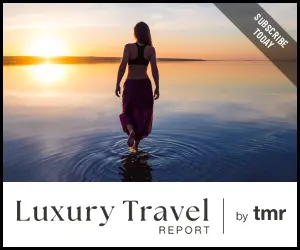Private Capital Is Powering Africa’s Next Chapter in Luxury Travel
As billionaires and Gulf investors drive a surge of ultra-luxury development across Africa, advisors are navigating a wave of opportunity—and complexity.

Photo: Damian Patkowski / Unsplash
A new Bloomberg report spotlights a striking shift in global luxury travel: Africa is emerging as one of the last great frontiers for high-end development, and billionaires are getting there first. From a $50,000-a-night private island off the coast of Tanzania to next-gen safari lodges and conservation retreats, capital is pouring into the continent at an unprecedented clip—fueled largely by tech moguls, Middle Eastern sovereign wealth funds, and private investors chasing what one expert calls “return on ego.”
For travel planners, the implications are twofold: Africa’s long-underserved high-end segment is exploding with new product, but navigating it requires care, especially in remote or infrastructure-light regions.
The Bloomberg piece details how Dubai’s Jumeirah Group, backed by the emirate’s royal family, has launched the first retreat in its new Jumeirah Privé collection: an exclusive-use island in Tanzania with its own helicopter pad, catamaran, and marine conservation zone. It’s one of several ultra-luxury openings across the continent, including recent investments by Virgin Limited Edition (now with over half its properties in Africa), Kasada Capital Management (funded by Qatar’s sovereign wealth fund), and South Africa’s The Royal Portfolio.

Development across the continent isn’t limited to safari zones either. Vineyard estates, gorilla trekking camps, beach-and-bush combos, and even luxury trains are gaining momentum. According to new data from Grand View Research, the Middle East and Africa luxury travel market is projected to grow at a 9.2% CAGR through 2030, hitting $141.3 billion. Safari and adventure lead the way, but experiential segments, such as celebration journeys and small-ship expeditions, are expanding rapidly.
Still, Africa’s appeal as a “blue ocean” for luxury development comes with friction. As Bloomberg notes, most banks in the region won’t finance more than 50% of a hotel’s value. That pushes many developers to self-fund—and build out entire ecosystems, from laundries and bakeries to power infrastructure, from scratch. For advisors, this makes site visits essential—not just to understand the guest experience, but to ensure the property is truly operational, well-run, and up to luxury standards.
The upside? A rising middle class, increased airlift, and a post-pandemic surge in demand for meaningful, conservation-led travel are driving demand beyond traditional safari staples. Virgin CEO James Bermingham put it simply: Travelers are drawn to “incredible locations with a terrific sense of spirit and culturally rich experiences.”
Africa is no longer just a niche. It’s the next global battleground for ultra-luxury travel.

